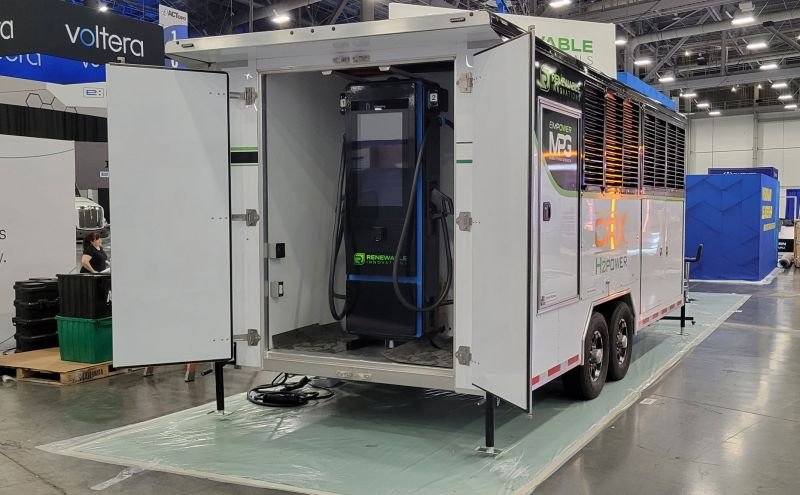Top Three Takeaways from the Advanced Clean Transportation (ACT) Expo
Jennifer Gangi
Guest Author: Robert Mount, CEO, Renewable Innovations
The ACT Expo, held this past May in Las Vegas, is billed as the largest advanced commercial vehicle technology show. As a long-time exhibitor, I can tell you that it’s a valid claim. With nearly 500 exhibitors and 12,000+ attendees, it’s an impressive array of expertise and equipment. Over four days, I had the opportunity to speak to potential customers at our exhibit, featuring our H2-Powered Mobile Power Generator, as well as 1:1 meetings with partners and other industry leaders. I attended many of the keynotes and visited as many of the exhibitors as time would allow. Here’s a few things I learned that I think are important for our association and indusry at large.
Hydrogen took front and center stage. In past years, EVs dominated the show floor, keynotes, and general buzz at the event. This year was markedly different. While EVs were still a large part of the equipment and sessions, hydrogen and HFCs were the new shiny star. Massive containers at ports for EV charging and H2 refueling, Commercial and delivery trucks. Large construction equipment. Farm equipment. Essentially every type of commercial vehicle that you can think of powered by H2.
We are still in the midst of a sea change. Everyone I spoke with is somewhere in their journey of designing or trying to achieve their ESG goals. They are trying to explore many different options as they plot the future. While this is ultimately good, it does mean that a lot of companies are still exploring and not purchasing.
We must work together to invest and build the hydrogen infrastructure for mutual success. This show focused only on commercial vehicles. But clearly, commercialization and investments are being made across the hydrogen economy. However, key elements are still behind, most critically hydrogen access. Top question from everyone we talked to about our H2 powered rapid EV chargers: Where do I get the hydrogen? Customers want an easy solution to get hydrogen. We have developed our own virtual pipeline and transport refuelers for hydrogen. But for H2 to have widespread adoption, easy and consistent access to hydrogen needs to happen faster.
In summary, it was a truly remarkable event. I left Vegas energized and excited for the hydrogen future that we’ve all been working so hard to build.
RI’s hydrogen-powered MPG at the ACT Expo
